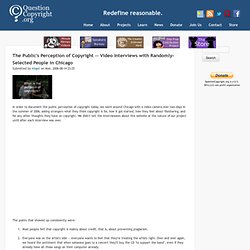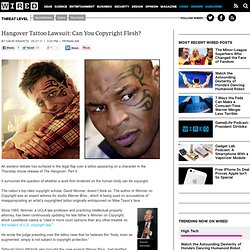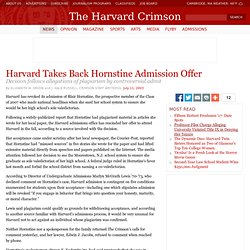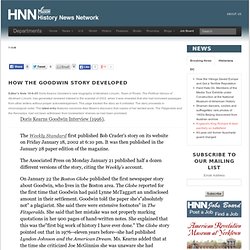

12 Most Picture Perfect Ways To Ensure You’re Legally Using Online Photos. For generations, a picture was worth a thousand words.

Now, in the social network age, a picture is worth a few hundred likes, some +1’s, a handfull of retweets, stumbles, tumbles, pins, and shares of all sorts. Oh, and those original thousand words. Using images in our online work is crucial. It’s a visual medium and how better to tell your story or draw in your audience than with a compelling photo?
But while some may be flattered you’re using a photo they took or image they created, most are not. US Copyright laws may be years behind the fast-paced world of social media and blogs, but they still control how a copyrighted work can be used. 1. If you took the photo or created the graphic and are not subject to a Work For Hire agreement, then you likely own the copyright and can do whatever you wish. 2. Video Interviews with Randomly-Selected People in Chicago. In order to document the public perception of copyright today, we went around Chicago with a video camera over two days in the summer of 2006, asking strangers what they think copyright is for, how it got started, how they feel about filesharing, and for any other thoughts they have on copyright.

We didn't tell the interviewees about this website or the nature of our project until after each interview was over. The points that showed up consistently were: Most people felt that copyright is mainly about credit, that is, about preventing plagiarism.Everyone was on the artist's side — everyone wants to feel that they're treating the artists right. You can view the video at the Internet Archive. It is also available at Google Video and YouTube. Tattoo Copyright 2005. Hangover Tattoo Lawsuit: Can You Copyright Flesh? An esoteric debate has surfaced in the legal flap over a tattoo appearing on a character in the Thursday movie release of The Hangover: Part II.

It surrounds the question of whether a work first rendered on the human body can be copyright. The nation’s top cited copyright scholar, David Nimmer, doesn’t think so. The author of Nimmer on Copyright was an expert witness for studio Warner Bros., which is being sued on accusations of misappropriating an artist’s copyrighted tattoo originally emblazoned on Mike Tyson’s face. David Nimmer Since 1985, Nimmer, a UCLA law professor and practicing intellectual property attorney, has been continuously updating his late father’s Nimmer on Copyright, which LexisNexis claims is “cited in more court opinions than any other treatise on the subject of U.S. copyright law.”
He wrote the judge presiding over the tattoo case that he believes the “body, even as augmented, simply is not subject to copyright protection.” U.S. How YouTube thinks about copyright. Cyberbee: Student Copyright Q&A. Valedictorian Copyright Case. Harvard has revoked its admission of Blair Hornstine, the prospective member of the Class of 2007 who made national headlines when she sued her school system to ensure she would be her high school’s sole valedictorian.

Following a widely-publicized report that Hornstine had plagiarized material in articles she wrote for her local paper, the Harvard admissions office has rescinded her offer to attend Harvard in the fall, according to a source involved with the decision. Her acceptance came under scrutiny after her local newspaper, the Courier-Post, reported that Hornstine had “misused sources” in five stories she wrote for the paper and had lifted extensive material directly from speeches and papers published on the Internet. The media attention followed her decision to sue the Moorestown, N.J. school system to ensure she graduate as sole valedictorian of her high school.
Song Parody Copyright Case. Lovers of offbeat music and hard-core rap would probably never use the names "Weird Al Yankovic" and "2 Live Crew" in the same sentence.

Yet, they have something very important in common. The law protects their use of other people's musical works. The reason is that courts consider both 2 Live Crew's rap combined with pop music riffs and Weird Al's combination of everything... to be parodies, which are protected under fair use doctrine. Defining Fair Use It is an American tradition to poke fun at, criticize and imitate cultural and political icons. Famous Copyright Infringement Plagiarism cases in Music.
George Harrison vs Bright Tunes Music Corp.

George Harrison’s ‘My Sweet Lord’ was released January 15, 1971 and hit the charts on January 23, 1971 as George Harrison’s first solo single. It was released under the Apple label and enjoyed the number one spot originally for five weeks, then in 2002, again for one week. It remained on the charts for a total of twenty-seven weeks. All of this is the good news. The not so good news involves a song called “He’s So Fine” recorded by the Chiffons in 1962 and then moved under the Bright Tunes Music Corp label in 1971.
February 10th, 1971, Bright Tunes filed a suit against George Harrison inclusive of his English and American companies. Plagiarism Copyright Case. Editor's Note 10-6-05 Doris Kearns Goodwin's new biography of Abraham Lincoln, Team of Rivals: The Political Genius of Abraham Lincoln, has generated renewed interest in the scandal of 2002, when it was revealed that she had borrowed passages from other writers without proper acknowledgement.
